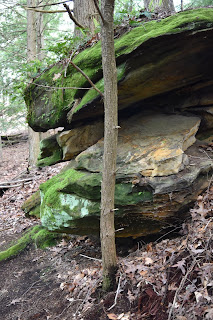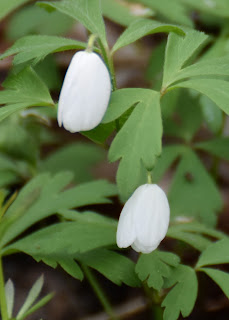I wrote the question as a reward for students who have worked so hard to make this semester work and also as a reward for me for plowing through the pile of exams. Other questions asked students to explain concepts, analyze specific works, or draw connections between characters, but the final question asked them to connect their reading to their lives:
It's a gimme question, really: who could fail to find something interesting to say in response? The only way to lose points would be to fail to provide examples from a text, but given that students could choose any text from the entire semester, they found some interesting examples. Many chose our most recent reading, Peter Heller's The River, but others stretched back as far as Thoreau's "Ktaadn" and Sara Orne Jewett's "A White Heron." Some saw themselves "Thinking Like a Mountain" with Aldo Leopold, while several students wrote passionately about W.S. Merwin's "The Vixen," a poem many of their classmates found puzzling.Choose any work we’ve read this semester and explain in some detail how it illustrates your own concept of what it means to be at home in nature. What work best represents the place what nature means to you or what you hope to experience in your relationship with nature? Be specific, providing examples from the text to support your claims.
I made my students work on this exam and I know I made them think, but in the end I really wanted to give them a chance to show me why our reading matters. Now that we're done, I hope they all have a chance to take their love for nature outdoors--at a safe distance, of course. With masks and hand-washing.









































